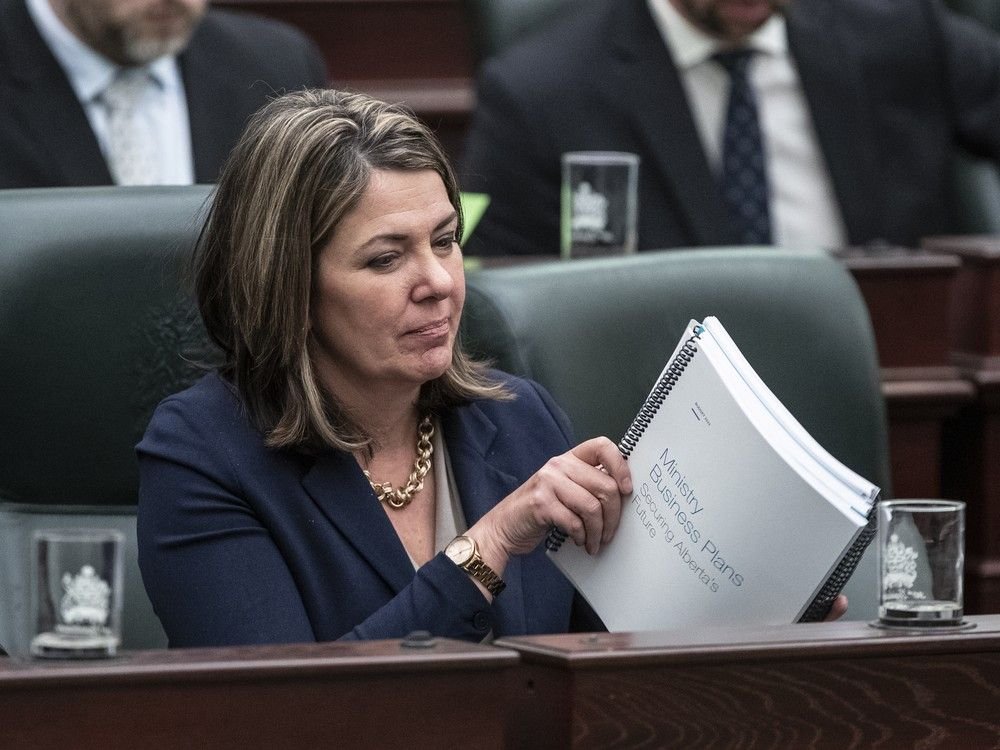As the Smith government prepares to table its budget next week, it continues to warn Albertans the province is “facing headwinds from every direction” and a budget deficit may be on the way after four years of surpluses. While there’s a lot the government can’t control — such as tariffs or the price of oil — it can control its own spending. And by reverting to its original 2022 spending plan, it could help avoid red ink. Read More
As the Smith government prepares to table its budget next week, it continues to warn Albertans the province is “facing headwinds from every direction” and a budget deficit may be on the way after four years of surpluses. While there’s a lot the government can’t control — such as tariffs or the price of oil

As the Smith government prepares to table its budget next week, it continues to warn Albertans the province is “facing headwinds from every direction” and a budget deficit may be on the way after four years of surpluses. While there’s a lot the government can’t control — such as tariffs or the price of oil — it can control its own spending. And by reverting to its original 2022 spending plan, it could help avoid red ink.
Advertisement 2
Story continues below
Article content
Article content
Recommended Videos
Article content
Consider some recent fiscal history.
In 2022, the Smith government delivered its first spending plan, but just three months later (in the 2023 budget) the government increased spending. To be fair, at the same time the government introduced genuine and transparent spending rules (e.g. limiting spending growth to inflation and population growth) but on an elevated level of spending compared to the original 2022 plan. Largely as a result, from 2023-24 to 2026-27, the Smith government will spend a projected $31.1 billion more than originally planned.
Defenders of increased spending may point to inflation and Alberta’s record-high population growth. But that explanation doesn’t wash. After doing the math, you can only blame higher-than-expected rates of inflation and population growth for $10.4 billion (33.5%) of this increase, so the vast majority of this new spending is discretionary.
Article content
Advertisement 3
Story continues below
Article content
And there’s another factor — resource revenue, which is often a significant but volatile component of Alberta’s budget. In the last 10 years alone, resource revenue has been as low as $2.8 billion and accounting for just 6.5% of total revenues (2015-16) and as high as $25.2 billion accounting for 33.2% of total revenues (2022-23). This roller-coaster of revenue has created instability in provincial finances.

Today, while resource revenues (including oil and gas royalties) are relatively high, if they simply fell to average levels (based on the last 20 years), the province would run projected deficits of $5.8 billion, $6.3 billion and $5 billion over the next three years. However, if the Smith government reverts to its 2022 spending plan, even with the 20-year average resource revenues, the province would be on track to run a budget surplus by 2026-27.
Advertisement 4
Story continues below
Article content
Why should Albertans care?
Because when the government runs budget deficits, it racks up debt, which Albertans must finance through their taxes. In 2024-25, Albertans will pay nearly $650 each in provincial government debt interest payments. That’s money no longer available for tax relief or services such as health care and education.
The Smith government had a spending plan in 2022 that would have helped keep the province in the black. With next week’s budget, it should revive that plan to help avoid budget deficits and the consequences of debt, which fall on Albertans and their families.
Tegan Hill is director of Alberta policy at the Fraser Institute.
Article content
Discover more from World Byte News
Subscribe to get the latest posts sent to your email.



Join the conversation